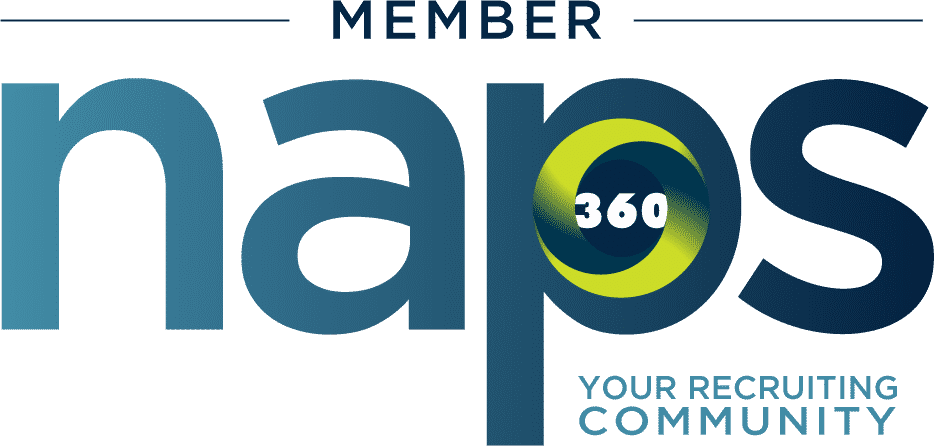The recruiting and hiring process has evolved over many years. The standard format that many businesses still use today began in the 1960s. Various industries were booming and corporations couldn’t hire people fast enough. The process of sending a request to fill an open position to the human resources department, placing a help-wanted advertisement in the local newspaper, and then spending countless hours reviewing resumes and interviewing candidates was both tedious and time-consuming.
Unfortunately, even with the internet job boards, not much has changed in the hiring process. We still have to post the position and screen applicants before we narrow down our search of candidates to interview. That’s when the fun really begins!
The Interview
The interview of a candidate is an important component in the hiring process. The employer can put a face to resume and have a conversation to find out more about the candidate. They can also determine if the person applying for the position will be able to fit into the organization’s culture.
Most hiring managers dread the interview process. There is so much involved in the interview process. Ensuring the location, scheduling dates and times, and making sure the right questions are asked from both a legal and qualification standpoint.
Another reason hiring mangers don’t necessarily look forward to the interview process is the because of the amount of time the process takes away from other job duties. According to Glassdoor, the length of time employers spend on interviews has almost doubled since 2009, (up to 23.8 days on average in the US). Delays in setting up the interview and conflicts in scheduling are amongst the main reasons for the extended time.
Interviewing candidates is challenging too because of the biases we all bring to the interviewing table. Instead of asking prescript questions related to the open position, interviewers tend to try to wing the interview by asking questions off the cuff. When the interviewee doesn’t answer according to the interviewer’s biases, they are eliminated from the pool of candidates. This flaw in the interview process is one that can lose the resource of a very qualified candidate. Worse, the candidate could make the employer liable for discrimination on many fronts.
Coaching From a Recruiter
A recent Society for Human Resources Management (SHRM) article states, “HR professionals often juggle the staffing function with many other duties: employee relations, compensation, benefits, and training and development to name a few. To best meet their staffing needs, effective HR professionals seek out additional resources that can help them recruit candidates…including third-party recruiters.”
Not everyone feels the same way about hiring a coach…for anything. Some feel that they can do things their own way and succeed by their own merits. That may be true for some. For most of us thought, we can always use a helping hand especially in the fast-paced hospitality industry. Using the skills and mindset of a recruiter is simply smart business. It is taking the advice from someone who has experience and can see things from 30,000 feet instead of from the dense forest view.
As in sports, a good coach can help clarify the vision of what you want and need as an employer. A coach looks at the various angles of the issue and connects the dots to your business. They understand what you do, how you do it, and the candidates you need to help your business succeed.
Benefits from a Coach
The most obvious benefit of receiving coaching from a recruiter is that you are more likely to ask the right questions. Asking the right questions, to help you hire the right person for the position and to do it quickly. Recruiters often have information about the specific traits of a candidate and know the direct questions to ask. Recruiters can increase your chances of quickly filling your next position. They can also help you fine-tune the skills that are important for future interviews.
Some of the things a recruiter can help you with regarding the interview process include:
- Determine if the position you’re hiring for is a priority – This may seem obvious, but when you’re on the ground, in the mud and the weeds, you don’t have the luxury of coming up for air and spending a lot of time analyzing your workforce. You simply know you have to fill a position. But what if you can move some people around? What if that position can be combined with another? Or eliminated all together? These are the questions a recruiter serving as coach is qualified to answer.
- Determine the decision maker – Some organizations have layers of bureaucracy they have to go through in order to make the hiring decision. Your coach can help you determine if the true decision maker needs to complete the interview process or someone else.
- Advise and assist with technology – The Covid pandemic brought video communications to the forefront for many. A good coach can help you determine if a video or phone interview is appropriate for the position you’re trying to hire. They can also assist you in the scheduling of these interviews.
- Act as a liaison between you and the candidate – This saves a lot of valuable time and prepares the candidate for what they can expect during the interview.
- Provide appropriate questions to ask – One of the greatest time-eaters in the interview process is asking unnecessary questions and often inappropriate ones. Take advantage of your coach and let him or her advise you how to properly conduct the interview.
- Expertise in finding the best fit – Since the recruiter knows the ins and outs of finding a qualified candidate, most of the work is done prior to the interview process. Your coach has the knowledge to advise you on how to conduct the interview based on their familiarization with the candidate.
“Hey Coach!”
When an employer gets bogged down in the interview process, it hurts everyone. The candidate, who is looking for a job and wants it now, goes elsewhere. The hiring manager loses productive time that could have been utilized elsewhere. And the employer still has an open position to fill. To eliminate all of the time wasted in an unproductive interview, consider using the expertise of a recruiter. Allowing a recruiter to coach you through the interview process will help you to alleviate unnecessary steps and hire candidates faster.





